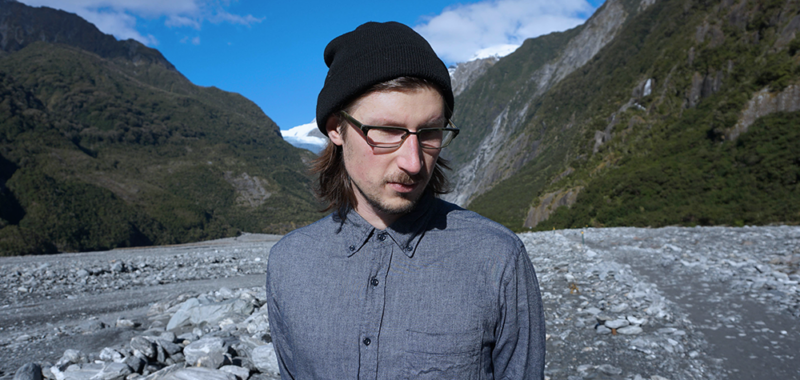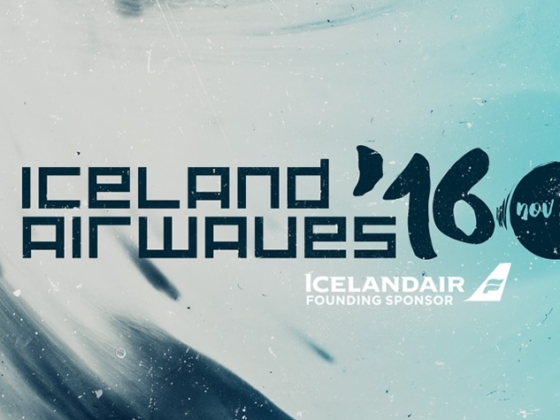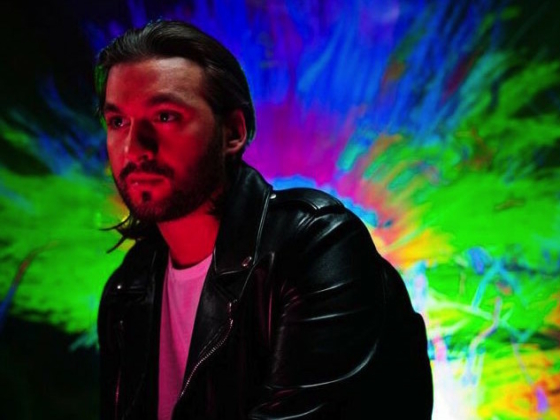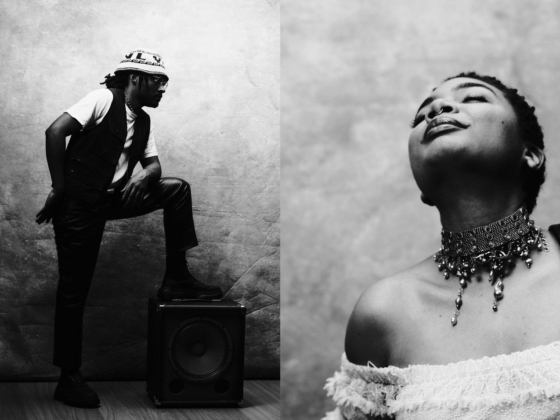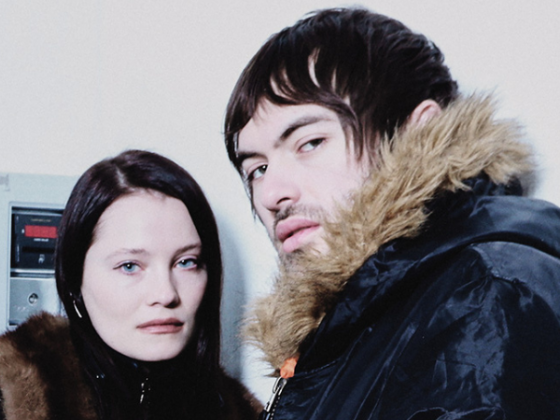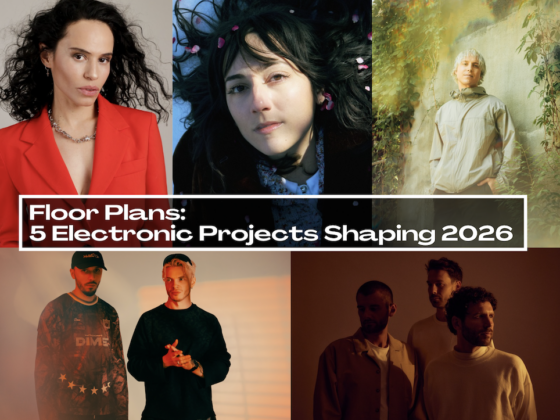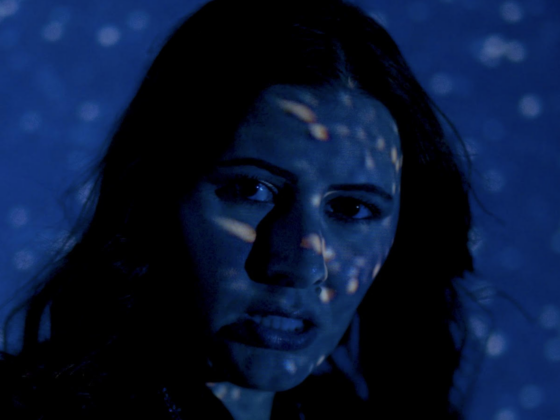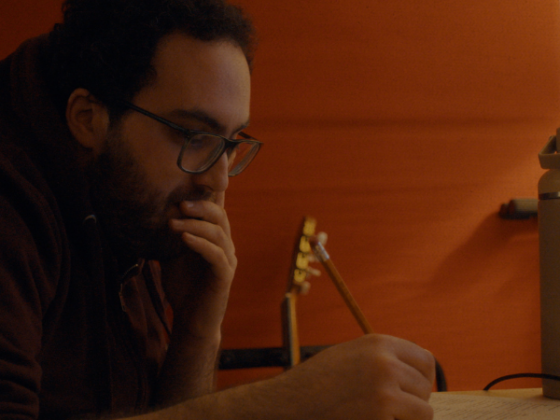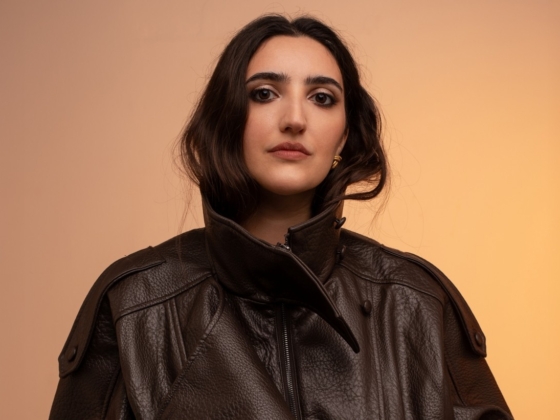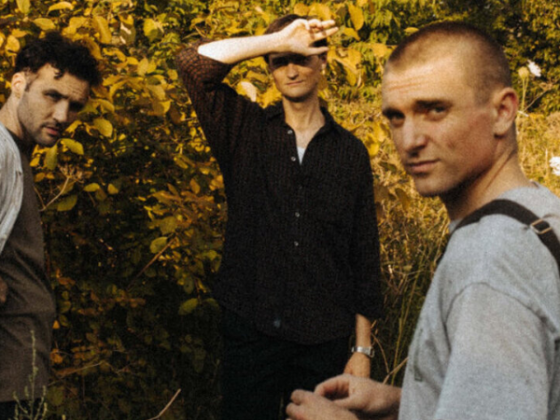EARMILK: Do you notice a difference in the places where you play, for instance Europe or North America?
Teen Daze: In terms of the actual performance and interaction with people, there is something about shows in Europe. Electronic music feels more ingrained in the culture. When one is playing electronic music in a place like Germany, the people in the crowd grew up with it and just seem get it. People are very open minded out here, it's been rare that the crowd wasn't up for whatever I present to them.
TD: In North America though things have changed widely over the last five years, it still feels new to people. When a crowd sees me on playing a live electronic performance, singing, building up stems, it's still becoming a new way of performing for people.
EM: Would you say that once people understand the music, the way they dance reaches a neutrality?
TD: Totally! Although one of the only places where I've noticed a reactionary difference is playing shows in Japan. In a really great way, everyone is very intentional, respectful, and quiet. Even the physicality of the rooms are different, there would be the event space in one room and the bar space in a separate room for socializing. That's one of my favourite parts of playing in Japan, people were really listening. Whether they could understand my lyrics is a different layer all together.
TD: In North America, usually, both music and bar space is intertwined. If I'm playing dance music, people's expectations is to dance, have fun with friends, talk, drink, and that's great. I want people to experience music the way that want to. I also play tracks that aren't oblique dance music though, when I'm singing for example, and I want to communicate something with the crowd. That can be difficult when people aren't completely listening.
EM: Do you think that your experience in Japan influenced the way you make music?
TD: Yeah, I think so. I love Japanese culture in general, going there is always such a culture shock. I'm not a city person because I spend so much time in cities on tour, so afterwards I just want to go back to the country. Although when I go to Japan, Tokyo is always an amazing experience.
TD: I really love German 60's and 70's new age rock and a friend of mine took me to a CD store that just sold that genre of music. It rocked my world (laughs). I was finding things I didn't know existed. Let alone to find this place in the weirdest corner of Tokyo.
TD: A big part of my relationship with Japan is that I have an amazing label out there. Every time I visit they take such good care of me and they do such a good job of promoting my music. The label is called PLANCHA and I've been working with them since 2011. I'll make the record and put it out in North America and Europe first. We'll then licence the record to the label in Japan as well. My North American team loves it because obviously a Japanese label will speak to a Japanese audience in a way we can't.
EM: Do you make different releases for the Japanese label?
TD: Yeah, the Japanese releases always come with bonus tracks. Sometimes, it turns an EP into a full length LP. The reason I do that is because it's usually quite easy for people to import albums from Europe or North America, so it's good to give people an incentive to purchase their music from a Japanese label. I'm happy to do it because I'm stoked to be releasing more music out there!
EM: Where do you draw inspiration for the sound palette you use?
TD: It definitely changes from record to record, whatever my overall feeling is at the time. I really like sounds that have soft edges that easy on the ears and digestible.
EM: Would you say your interest in German Krautrock is soft edged though?
TD: (Laughs) What's funny is that the parts of that genre, which I like the most, are rather softer. There are lots of synths, delayed guitars, it's incredibly beautiful music. Some Krautrock can be very acidy and ten minutes of a bass grove or pulsing drums, but I tend to enjoy the softer stuff.
EM: So when you try to find inspiration through other music, you don't necessarily stick to one genre?
TD: Yeah, it's definitely rooted in texture too. For example, I've been listening to Stereolab a lot lately. A band might seem complete with multiple instruments that a lot of people acknowledge as genuine. Stereolab take those normal ideas and turns them on their head, that's what I've always been inspired by. When artists can take the norm and turn it into something a little bit weirder.
TD: For instance, the album with the Japanese bonus tracks, A World Away, was something that's a blending of dance music and new age music. For some stuff I'll be releasing later this year, I've fallen in love with French House again. Crydamoure Records for example, or even Daft Punk's Discovery, which is the perfect album in my mind.
EM: How has technology merged with your production over the years?
TD: Every time I update my DAW's or the software I use, I'm inspired to change and try something new. Whether it's spending time with different VST's or the last record was all analog. Moving away from technology too is still a reaction to it. I still have my vision of what I want my music to sound like and for the most part technology only makes that easier.
TD: I'm always trying to not let the technology speak for itself. I would hate to put music out and have someone say, "this is a Reason or Logic record". Some people can do that really well, they have abilities to manipulate technology and do really impressive things. At the end of the day though, technology always takes a back seat to the creative process.
EM: Where do you see the future of music production moving?
TD: Us moving away from software synths and trying to think out of the box, it seems like there is still so much to be found in the world. There is this resurgence of modular synths as well, which is amazing; the amount of texture and sound you can get out of them is limitless. Roland has been doing interesting stuff, putting out that SH101 synth that functions as a soft synth and as an analog controller.
TD: There will be a blending of those two because the modular and analog synth world will be less difficult for the average person to obtain. It is still tough to get your hands on an analog synth and not expect to pay a ton of money. It's why software synths are so prevalent now because any kid can get their hands on a cracked version of Ableton. All you need is a cheap mini synth, access to Youtube, and you can produce. It's amazing how much you can create with so little.
TD: One conversation that is thrown around a lot is asking what is a thing that we just accept as normal, yet we could change to make better? To be completely wireless on stage would be so amazing, it's such a small thing, but patch cables break all the time and are so unreliable. It's so dumb, we have wireless everything, but we're still plugging in cables to perform.
EM: How does space-time influence your own creative contentment? Do you need breaks between projects?
TD: One of the reasons I enjoy touring and travelling is because it subconsciously inspires me in ways I don't fully understand. Things happen naturally for me, such as I'll go on tour and not record anything, but once I get home I'll produce like crazy. That's the exact example of what just happened, I came off a tour and was inspired to produce a lot of new music. It is important to have situations change for me, I definitely need a balance.
TD: I've come to realize that if I spend too much time intentionally working, whether on a collection or a track, I lose focus quickly. I'm frequently making something and putting it aside, before coming back in a few weeks to change small things. Those breaks open up creativity for me.
EM: What can humans on a whole learn from positive thinking?
TD: This is a pretty tough question. If you don't have the mind set of wanting a positive experience, there is so much in life that will put you down. I had a great time on my last tour of being with the band, but I was just experiencing stress and anxiety that I had never had before. I came home worn out from travelling and for a while thought of never going on tour again.
TD: Two months later, here I am on my way to Europe and I realized I need to have a good attitude about this. There is no way I would come out here, be in front of people, but not want to be here. That's a good example of positive thinking! I'm going to craft the set in a certain way that I can be happy performing these songs and enjoy it. Right from the start of this tour, every show has been amazing.

